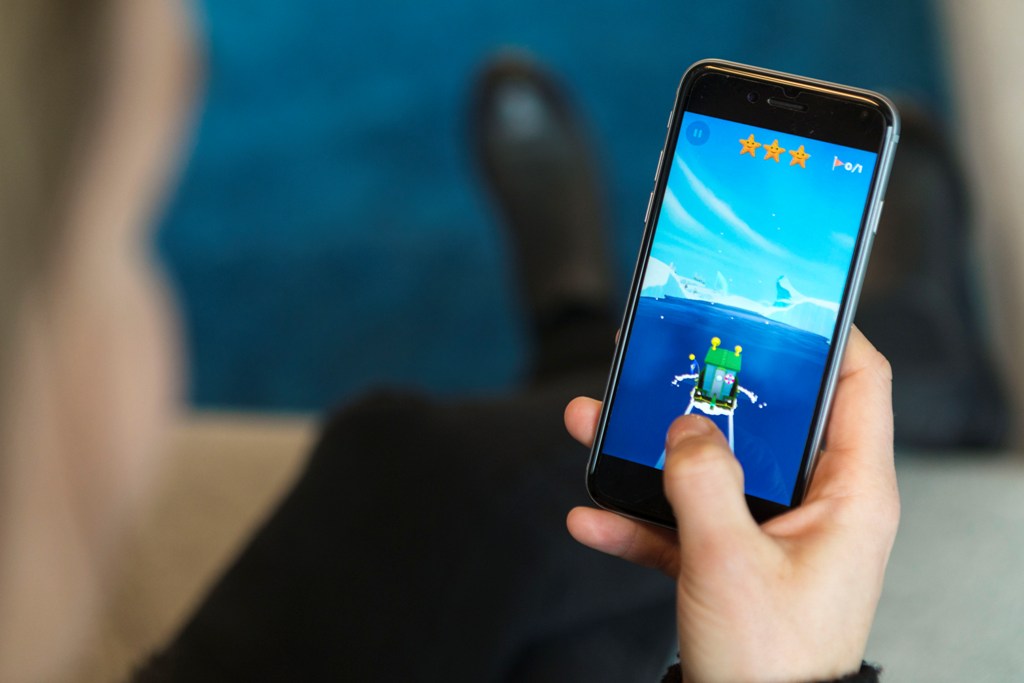
Deutsche Telekom’s mobile game ‘Sea Hero Quest’ has been played by nearly 2.5 million, in 193 nations, contributing to the largest dementia study in history. CEO of Deutsche Telekom, Tim Höttges: “Digitisation is groundbreaking in terms of progress”. The initial results are already expected to facilitate the development of new early diagnostic tests for dementia. Sea Hero Quest will now be adapted for use in a clinical setting
Launched by Deutsche Telekom in May of this year, the mobile game ‘Sea Hero Quest’ sets new standards in dementia research. The game has been developed in collaboration with University College London, the University of East Anglia, Alzheimer’s Research and game designers, Glitchers. Nearly 2.5 million people have played ‘Sea Hero Quest’ to date, creating the first global benchmark for human spatial navigation. This has been recognised as a key step in the development of new, early diagnostic tools for dementia. Sea Hero Quest has tested the spatial navigation abilities of people of all ages and genders, all across the world. The research team has presented the initial findings from the analysis of the data set generated by the game at leading global conference, Neuroscience 2016 in San Diego.
Deutsche Telekom’s ‘Sea Hero Quest’ is a direct example of the company’s ethos of digital responsibility and of its leadership in innovation. “Millions of people have provided data to help in the fight against dementia. This vast amount of data, from a secure cloud, allows us to provide scientists with the raw materials they urgently need for cutting-edge research", said Tim Höttges, CEO of Deutsche Telekom. “Digitisation is groundbreaking in terms of progress in public health.”
Dr. Hugo Spiers of University College London has been leading the analysis of the anonymous player data alongside Dr. Michael Hornberger, Professor of Applied Dementia Research at the University of East Anglia. Initial findings from the effort indicate that our spatial navigation abilities begin to decline from early adulthood (sample analysis began at 19) and that they continue on this trajectory across the lifespan (for example, those aged 19 were 74% likely to accurately hit a target during the game, whereas this figure had reduced to 46% amongst those aged 75). This progression is in stark contrast to previous smaller scale studies (sample size circa 100) which had previously suggested such a decline to be expected in later life.
This initiative demonstrates how digitalization can provide the vital foundations for research. Within just a few months, it has yielded the largest ever data set of its kind. In Albania alone, a total of nearly 50.000 persons have downloaded and played the game. This impressive figure is the highest if we compare it against the number of population of all countries that have contributed. Interestingly, the majority of Albanian Sea Hero gamers are males, which make up 61% of total players.
The complex digital data the game generates are being stored securely and anonymously in the cloud.
Sea Hero Quest can now be used to support early diagnosis of dementia as well as influence the treatment of dementia patients. In the process, the mobile game will also be used to measure potential improvements in patients’ spatial navigation abilities. Introducing Sea Hero Quest to a clinical setting allows for the measurement of potential improvements in spatial navigational abilities. It could therefore potentially be used in drug trials to assess the effectiveness of drug treatments.
Further analysis of the data is still to be undertaken and is expected to take two years to complete. Later analyses of the research will also assess six other demographics tracked by the game including education level, handedness, self-rated spatial navigation ability, the geographical environments in which players grew up, hours of sleep and amount of time spent travelling per day.
The impact of this research now looks set to be a real breakthrough in the battle against dementia, a worldwide epidemic predicted to affect 135 million people by 2050.
The game continues to be available for free download from the App Store and Google Play. And the data it produces are still being provided to participating scientists – and, thus, to the dementia research community. /noa.al/






